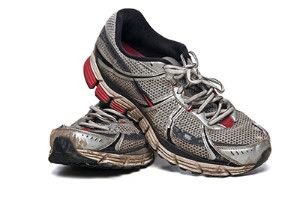Bremerton | Port Orchard (360) 377-2233

Selecting the right running shoes is essential for seasoned athletes and beginners embarking on a fitness journey. Start by understanding your foot type, whether you have a neutral arch, high arch, or flat feet. This knowledge will guide you toward shoes that offer the appropriate support and stability. Consider the terrain you'll be running on, as different shoes cater to road running, trail running, or a mix of both. Pay attention to the cushioning, as it directly impacts shock absorption during each stride. Ensure a proper fit by trying on shoes in the evening when your feet may be slightly swollen. Check for ample toe room and a snug heel fit to prevent blisters. Lastly, consider your running style and any specific foot conditions. Investing time in choosing the right pair of shoes enhances performance and minimizes the risk of injuries. If you are seeking additional information about how to choose the right running shoe, it is suggested that you consult a podiatrist who can provide you with the knowledge you are seeking.
If you are a runner, wearing the right running shoe is essential. For more information, contact one of our doctors from Kitsap Foot & Ankle Clinic. Our doctors can provide the care you need to keep you pain-free and on your feet.
Choosing the Right Running Shoe for Your Foot Type
To increase performance and avoid the risk of injury, it is important to choose the right running shoe based on your foot type. The general design of running shoes revolves around pronation, which is how the ankle rolls from outside to inside when the foot strikes the ground.
If you have any questions please feel free to contact one of our offices located in Bremerton and Port Orchard, WA . We offer the newest diagnostic and treatment technologies for all your foot and ankle needs.